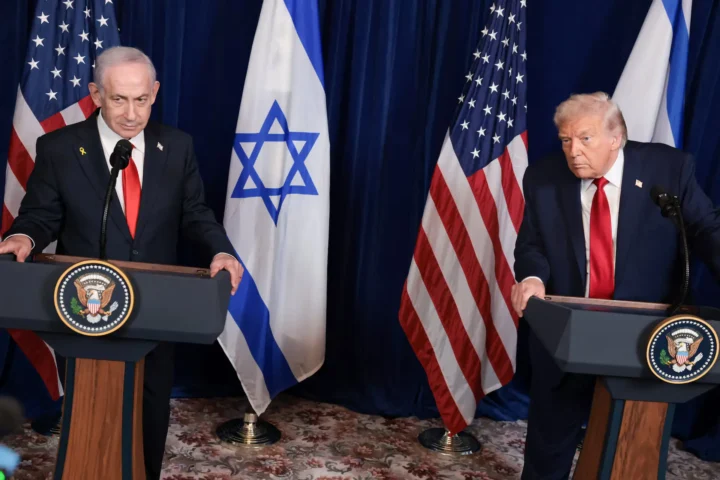In the ever-unpredictable landscape of American politics, few events cause a genuine ripple through the status quo. But Tulsi Gabbard’s formal announcement at a Trump rally in Greensboro, North Carolina, that she is officially joining the Republican Party, marks one of those moments. Not merely because a former Democratic presidential candidate has crossed the aisle—although that in itself is notable—but because this could represent a significant and symbolic turning point for Donald Trump in the 2024 election.
For independent-thinkers like myself, there is no home in the Democrat Party. However, there is a home for us in the Republican Party.
— Tulsi Gabbard 🌺 (@TulsiGabbard) October 23, 2024
The Republican Party of warmongering elite Dick Cheney is in the past. Trump’s GOP is a big open tent party of the people, equality,… pic.twitter.com/lz19KyYERf
The timing couldn’t be more perfect, or more telling. North Carolina is a swing state where independents and moderate Democrats have often tilted the balance, and Gabbard has long positioned herself as a political maverick, unshackled from partisan dogma. Once a rising star in the Democratic Party and a vice chair of the DNC, Gabbard’s presence in the GOP now—alongside former Democrat and environmental activist Robert F. Kennedy Jr.—represents a new kind of bipartisan shift that could work wonders for Trump’s campaign.
By joining Trump’s team as an honorary co-chair for his transition team, Gabbard is not just throwing her support behind the former president; she is giving the Republican Party something it has long needed—a fresh face with undeniable credibility across both parties. Gabbard’s military service and her record as a fierce critic of establishment Democrats have earned her a following that transcends party lines. And that’s precisely what Trump needs.

But the real kicker came just a day prior when Liz Cheney, once the embodiment of establishment conservatism, told Republican women they could feel free to vote for Kamala Harris. This is a seismic moment, not because it signals the loss of a few votes here or there, but because it reveals a growing fracture among traditional Republicans. By essentially “giving permission” to GOP women to consider Harris, Cheney may have inadvertently given Trump a new advantage.
How? Because Cheney’s message could backfire in an age where Republican women—long seen as a reliable bloc—might bristle at being told where their allegiances should lie. Many of these women, disillusioned by the politics of old, may find a more resonant voice in Gabbard, whose candid criticism of Kamala Harris on the debate stage in 2020 won her praise from both progressives and conservatives alike. Gabbard’s sharp dissection of Harris’s prosecutorial record was not just a footnote in a primary—it was a moment of clarity for many disillusioned voters who questioned Harris’s authenticity.
Now, with Gabbard aligning herself with Trump, the former president gains more than just an influential figurehead. He gains a powerful narrative. Gabbard has publicly declared her admiration for Trump’s leadership in “transforming the Republican Party back to the party of the people and peace.” These are not just words; they are a rallying cry for those feeling politically homeless, those who feel left behind by a Democratic Party that has drifted toward progressivism and a Republican Party that once seemed controlled by the Cheney-Bush wing.
For Trump, Gabbard’s endorsement isn’t just a feather in his cap—it’s a signal to moderates, independents, and even some progressives that Trump’s GOP is different. It’s a Republican Party that can now claim to be both anti-establishment and focused on common-sense governance—at least, in Gabbard’s words.
The endorsement comes at a crucial moment. Trump’s base is already fiercely loyal, but his path to victory will be determined by winning over swing voters and those who feel politically disenchanted. Gabbard brings the credibility of a former Democrat who can reach voters Trump has traditionally struggled with: veterans, independents, and the more skeptical, younger voters.
What’s more, Gabbard’s repeated criticism of America’s foreign policy establishment aligns well with Trump’s rhetoric. Her calls for peace and restraint in foreign entanglements dovetail neatly with Trump’s own critiques of “endless wars.” Together, they form a duo capable of articulating a vision of American strength without military overreach—a message that resonates deeply with an American electorate tired of international quagmires and ballooning defense budgets.
As we look toward 2024, it’s clear that Tulsi Gabbard’s move may be more than just a headline. It might represent the beginning of a new, rebranded Trump campaign that can broaden its appeal, pulling in voters who would otherwise never consider casting a ballot for the GOP.
With Cheney’s comments giving Republican women permission to vote for Kamala Harris, the contrast could not be starker. On one side, the tired remnants of establishment politics. On the other, a newly energized Trump-Gabbard coalition, representing what they claim is a party of common sense, peace, and populism.
Gabbard’s move is not just a win for Trump; it’s a seismic shift that could realign the Republican Party and give it a significant lead as we head into the final stretch of this election. Whether this coalition will ultimately succeed remains to be seen, but one thing is certain—2024 just got a whole lot more interesting.











